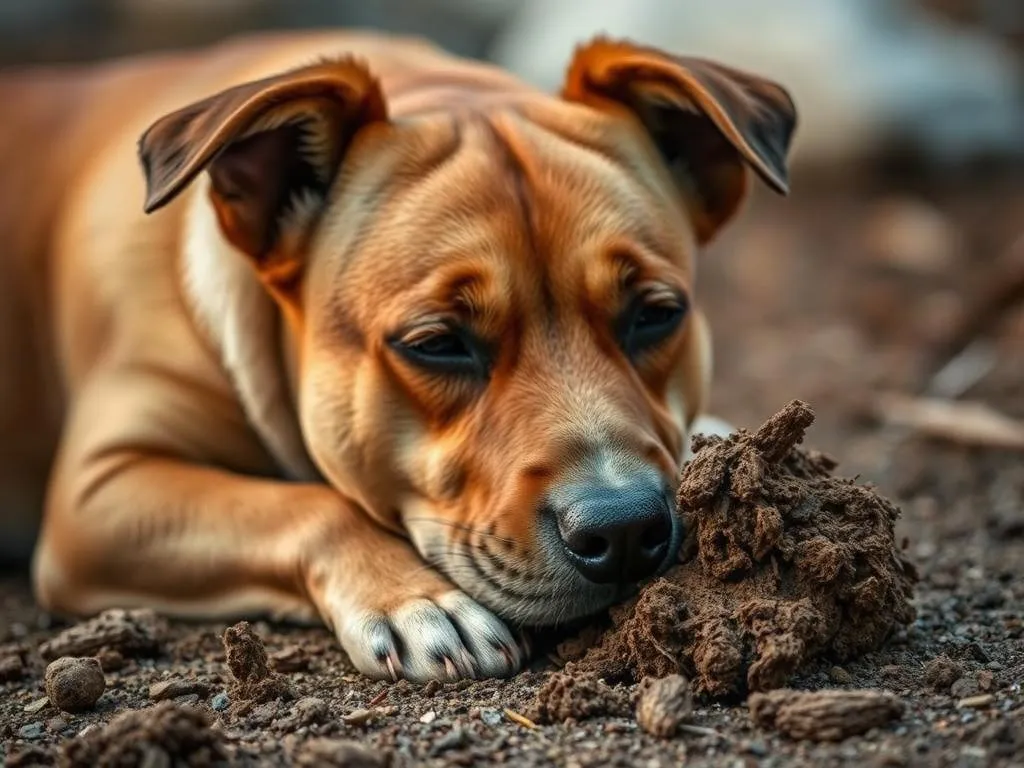
Understanding why your dog might poop in their sleep can be concerning and puzzling for many dog owners. This behavior can stem from various causes ranging from medical to behavioral issues. Let’s delve deep into this subject to help you understand your furry friend better.
Understanding Canine Digestion
The Digestive Process in Dogs
Dogs have a unique digestive system that is quite different from humans. Their digestive tract consists of the mouth, esophagus, stomach, small intestine, and large intestine. When a dog eats, the food travels down the esophagus to the stomach, where it is mixed with digestive juices. This mixture is then passed into the small intestine, where nutrients are absorbed. Finally, the leftover waste is moved to the large intestine before being expelled as feces.
The diet plays a significant role in digestion. High-quality dog food that is rich in nutrients helps ensure that your dog can digest their food effectively. Conversely, a poor diet can lead to digestive issues, which may result in accidents, including pooping while they sleep.
Common Digestive Issues
Dogs can face various digestive problems that may lead to incontinence or a lack of control over bowel movements. Some common issues include:
- Gastrointestinal disorders: Conditions such as inflammatory bowel disease (IBD) can disrupt normal digestion.
- Infections: Bacterial or viral infections can lead to diarrhea and other problems.
- Parasites: Worms and other parasites can cause significant digestive distress in dogs.
These conditions can heighten the chances of your dog experiencing incontinence, leading to accidents during sleep.
Causes of Pooping in Sleep
Medical Conditions
When asking yourself, “Why does my dog poop in their sleep?” it’s essential to consider potential medical issues. Some common conditions include:
- Gastrointestinal disorders: Conditions like IBD or colitis can cause your dog to lose control over their bowel movements.
- Infections: If your dog has a gastrointestinal infection, they may not be able to control their urges, even while sleeping.
- Neurological issues: Certain neurological problems can affect a dog’s ability to control their bowel movements.
If you suspect a medical problem, look for signs such as:
- Changes in appetite
- Vomiting or diarrhea
- Lethargy
- Abdominal pain
Behavioral Factors
In addition to medical causes, behavioral factors can contribute to why your dog might poop while sleeping. Stress and anxiety can significantly affect a dog’s ability to control their bowel movements. Some common behavioral causes include:
- Separation anxiety: Dogs that are anxious when left alone may have accidents during sleep.
- Stressful environments: Changes in the household, such as a new pet or family member, can cause stress and lead to accidents.
- Lack of training: Inadequate potty training can mean that your dog is not fully house-trained, leading to accidents.
Age-Related Factors
Age can also play a vital role in a dog’s ability to control their bowels. Puppies often have immature digestive systems, which can lead to accidents as they sleep. Conversely, senior dogs may face age-related challenges, including:
- Decreased muscle control: Older dogs may not have the same level of control over their bowels.
- Medical conditions: Senior dogs are more likely to suffer from medical issues that can affect digestion and bowel control.
Understanding these differences can help you better manage your dog’s behavior based on their life stage.
When to Seek Veterinary Help
Signs Your Dog Needs a Vet Visit
If your dog is pooping in their sleep, it’s crucial to monitor their behavior closely. Certain signs indicate that a veterinary visit is necessary:
- Persistent accidents in sleep
- Blood in stool
- Severe lethargy or weakness
- Loss of appetite or excessive drinking
- Vomiting or diarrhea that lasts more than a day
Seeking professional help is essential for diagnosing any underlying issues that may be causing this behavior.
What to Expect at the Vet
When you visit the vet, they will likely perform a comprehensive examination, which may include:
- Physical examination: Checking for signs of distress, pain, or abnormalities.
- Diagnostic tests: Blood tests, fecal examinations, or imaging studies to identify any underlying medical issues.
- Treatment recommendations: Depending on the diagnosis, your vet may suggest medications, dietary changes, or behavioral training.
Understanding what to expect can help alleviate some of the anxiety associated with vet visits.
Preventative Measures
Diet and Nutrition
A well-balanced diet is crucial for preventing digestive issues in dogs. Here are some ways to ensure your dog’s diet is optimal:
- High-quality food: Select dog food that contains natural ingredients and is appropriate for your dog’s age and health needs.
- Regular feeding schedule: Maintain a consistent feeding schedule to help regulate your dog’s digestion.
- Supplements: Consider discussing with your vet whether supplements, such as probiotics, might be beneficial for your dog’s digestive health.
Training and Behavior Modification
Training your dog can significantly reduce the likelihood of accidents while sleeping. Here are some tips:
- Reinforce potty training: Ensure your dog understands where and when to relieve themselves.
- Positive reinforcement: Use treats and praise to reward your dog for going outside or using designated areas.
- Reducing anxiety: Implement techniques such as crate training or calming products to help your dog feel secure.
Creating a Comfortable Sleeping Environment
A comfortable sleeping area can also impact your dog’s ability to relax and sleep soundly. Consider the following:
- Comfortable bedding: Provide a cozy bed that supports your dog’s body and helps them feel safe.
- Routine: Maintain a consistent bedtime routine to help your dog feel secure and ready for sleep.
- Quiet space: Ensure that your dog has a peaceful sleeping environment, free from disturbances that could cause stress.
Conclusion
In summary, understanding why your dog may poop in their sleep involves exploring various potential causes, including medical issues, behavioral factors, and age-related challenges. It’s essential to monitor your pet closely and seek veterinary help when necessary. By being proactive in their care, maintaining a healthy diet, and ensuring proper training, you can help your dog lead a happier, healthier life.
Being a responsible pet owner means staying informed about your dog’s health and behavior. Always remember that your veterinarian is your best resource for addressing any concerns regarding your furry friend.
FAQs
Can all dogs poop in their sleep?
Yes, while it’s not common, any dog can experience this behavior, particularly if they have underlying health issues or are under stress.
Is it a serious issue if my dog poops while sleeping?
It can be a serious issue depending on the underlying cause. If it happens frequently, it’s advisable to consult with a veterinarian to rule out any medical concerns.
What home remedies can help with my dog’s digestive issues?
Some home remedies may include dietary changes, such as incorporating pumpkin or probiotics, but it’s best to consult with your veterinarian before trying any remedies.
How can I tell if my dog’s behavior is normal?
Normal behavior varies by dog, but signs of distress, frequent accidents, or changes in appetite or energy levels are often indicators that something may be wrong.
Are certain breeds more prone to this behavior?
While pooping in sleep can occur in any breed, some breeds may have predispositions to digestive issues or anxiety, which could increase the likelihood of this behavior.
By understanding these aspects, you can provide better care and ensure your dog remains healthy and happy.









